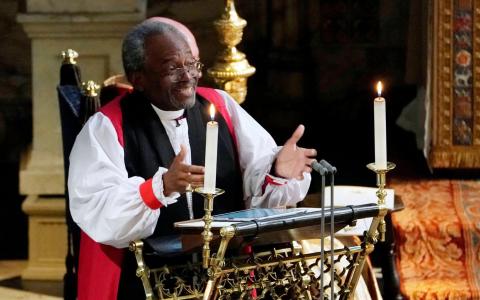As a primary care doctor in Harlem, I see the impact of social conditions such as poverty, lead paint poisoning, and asthma-causing mold in public housing, as well as the emotional trauma that accompanies financial barriers such as not having the right medical coverage to gain timely and effective treatment.
As a community organizer and political independent, I see the barriers that block poor and ordinary people from full and equal participation in our democracy. These are literally matters of life and death.
The Indian writer and activist Arundhati Roy in her essay, "Democracy’s Failing Light," poses the following:
“The question about life after democracy is addressed to those of us who already live in democracies, or in countries that pretend to be democracies. It isn’t meant to suggest that we lapse into older, discredited models of totalitarian or authoritarian governance. It’s meant to suggest that the system of representative democracy – too much representation, too little democracy – needs some structural adjustment.”
“Too much representation, too little democracy,” captures what democracy in America has become.
The representatives are distant from the people in a party-dominated, top-down process. Closed party primaries that exclude independents and non-party members and other forms of voter suppression, the Electoral College overriding the popular vote, two-party-controlled debates and gerrymandered districts are strangling our democracy and perhaps their most detrimental effect is to divide and disenfranchise ordinary people.
In 2016, over 26 million registered voters were excluded from voting in primary elections for the highest office, the presidency of the United States. Open Primaries staged a rally before the New York primary at the New York City Hall to protest the exclusion of independents. More than 40,000 Americans from around the country signed petitions calling on the Democratic and Republican parties to open the primaries and allow all voters to vote.
Though an overwhelming majority of voters polled, including young voters and people of color, want the primaries to be opened, the parties have failed to do so.
An important feature of democracy that we are at risk of losing is the opportunity for the collective social growth that a vibrant, inclusive, and nonpartisan process could foster.
A recent study by political science professor Diane Mutz at the University of Pennsylvania, which was written about in the New York Times and published in the Proceedings of the National Academy of Sciences, found that:
“...[W]hites, feel their status in America and the world is threatened by America's growing racial diversity and a perceived loss of U.S. global dominance. Under threat by these engines of change, America's socially dominant groups increased their support in 2016 for the candidate who most emphasized re-establishing status hierarchies of the past.”
In other words, the study says whites, "America's socially dominant groups," voted for Donald Trump because they were afraid of people of color becoming too prominent, despite the fact that some of these same white voters cast a ballot for Barack Obama in 2008 and in 2012.
The study ignores the attempts of many voters -- white and of color -- to shake up the political status quo. It is also notable that in the 2016 election, over a million fewer African Americans voted for the Democratic Party and its nominee, Hillary Clinton, than voted for President Obama in 2012.
Political science statistical analyses often fail to see phenomena that are emergent and happening outside the usual categories. Such studies ignore the efforts of people to break out of old paradigms.
The view so often expressed by political scientists that independents are "not real" -- that insists on putting us in the box of being Democrat or Republican -- is one example of this blindness.
Social growth requires an environment that allows us all to cross divisions and take responsibility for each other. A quality related to what Bishop Michael Curry expressed in his sermon at the wedding of Meghan Markle and Prince Harry.
He said:
"When love is the way, then no child will go to bed hungry in this world ever again. When love is the way, we will let justice roll down like a mighty stream and righteousness like an ever-flowing brook. When love is the way, poverty will become history."
Though he was speaking within the setting of the British monarchy, his sermon broke through those conventions.
Bishop Curry quoted Dr. Martin Luther King, Jr, who led the movement for civil and democratic rights for African Americans and also for the transformation of the entire American society.
In his "Letter from Birmingham City Jail," written while he was serving a sentence for participating in civil rights demonstrations in Birmingham, Alabama, Dr. King wrote that the demonstrators were affirming "those great wells of democracy which were dug deep by the Founding Fathers in the formulation of the Constitution and the Declaration of Independence."
The soul of American democracy was forged in the battles to unite within the nation the cause of human freedom and equality with voting rights. I count today’s independent reform movement as a movement to inspire a rebirth of the soul of American democracy.
We are a movement of ordinary Americans of all colors who are attempting to break free of party, and of political convention.
Perhaps the greatest lesson from the royal wedding is the possibility of bridging centuries old racial divisions within and across nations.
Photo retrieved from BBC.
